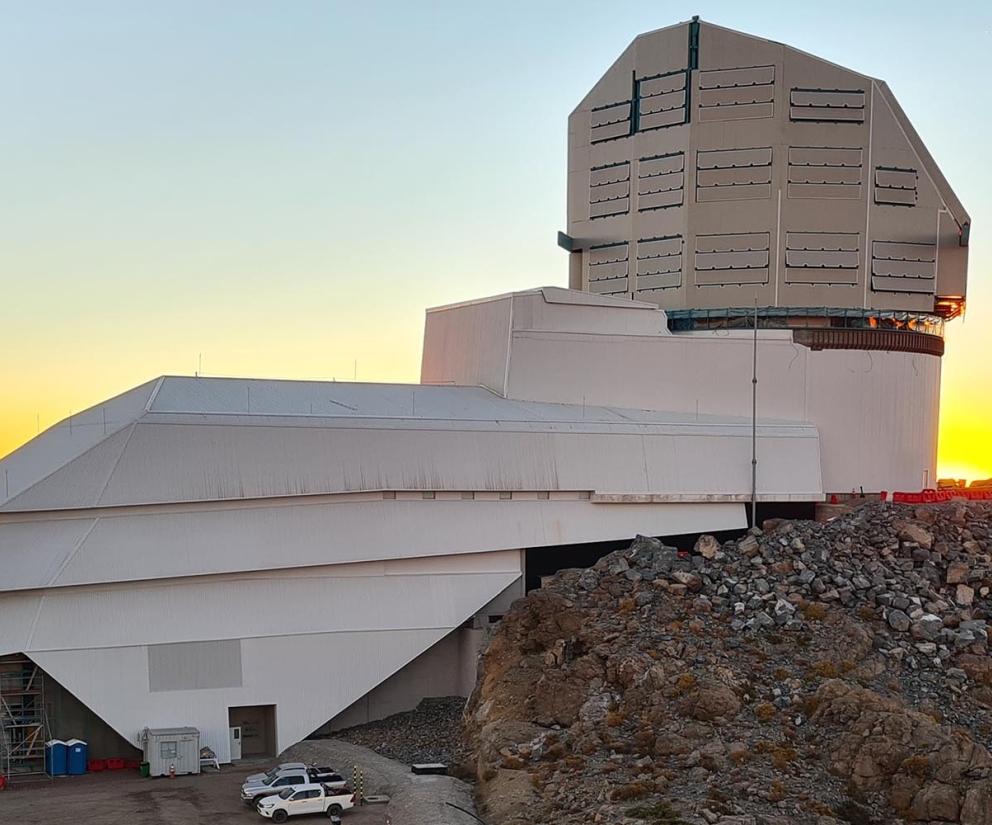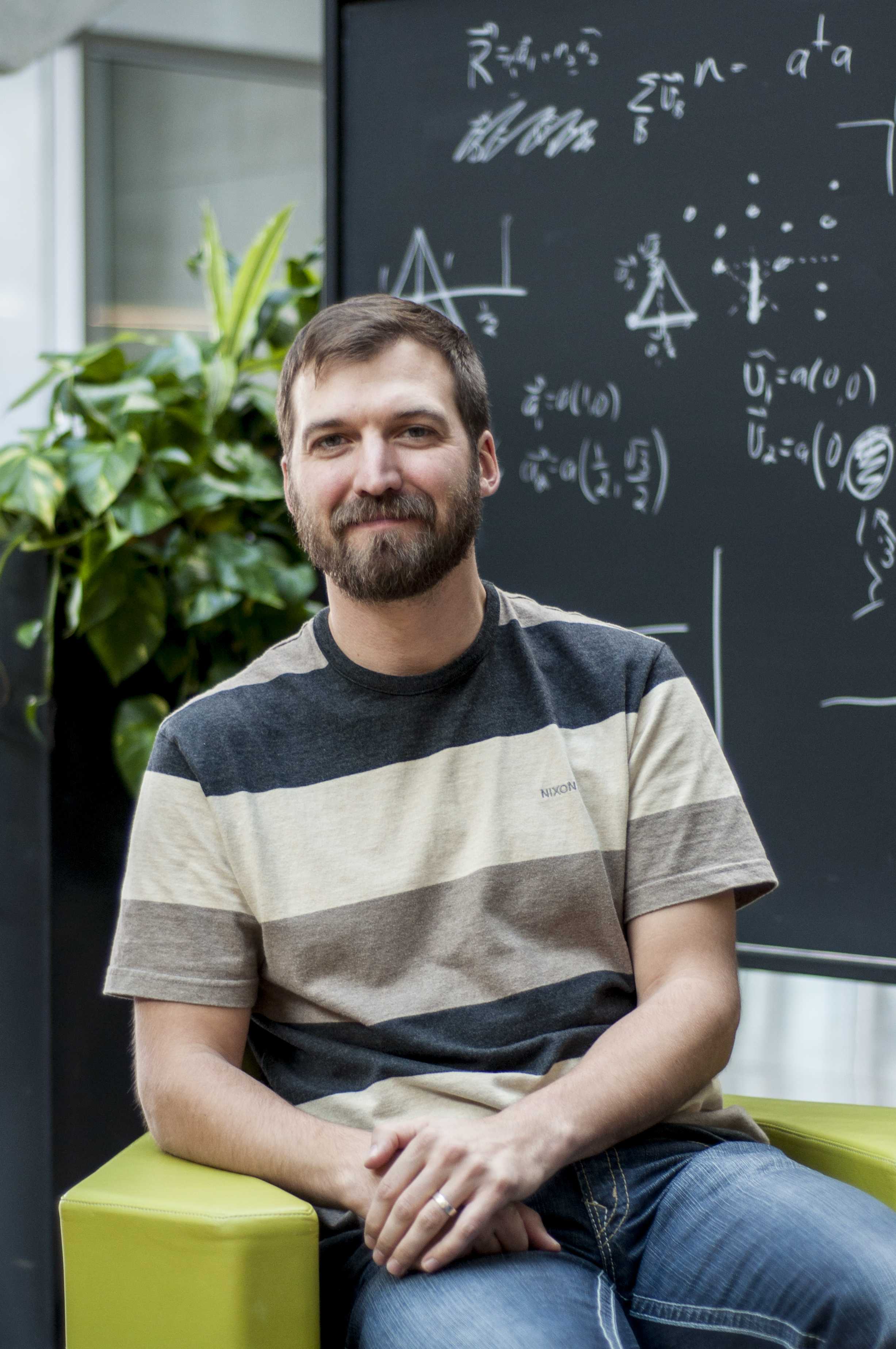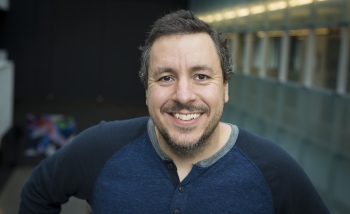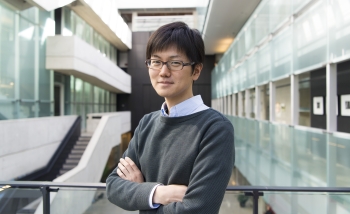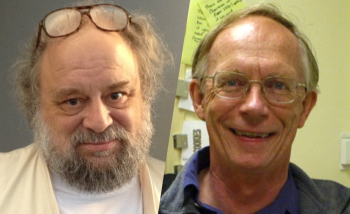Two Perimeter researchers win CAP awards
Two Perimeter researchers whose work explores the incredibly complex realms of quantum entanglement and high-energy particle physics have been awarded medals from the Canadian Association of Physicists.
Condensed matter theorist Roger Melko has been awarded the CAP Herzberg Medal, which honours outstanding achievement by a Canadian physicist early in their career.
Melko is an associate faculty member at Perimeter and holds the Canada Research Chair in Computational Many-Body Physics at the University of Waterloo.
Freddy Cachazo, who is the Gluskin Sheff Freeman Dyson Chair in Theoretical Physics at Perimeter Institute, has won the CAP-CRM Prize in Theoretical and Mathematical Physics.
“Freddy and Roger are outstanding young researchers pushing the frontiers of theoretical physics,” said Perimeter Faculty Chair Robert Myers.
“But, more than that, they reflect the growing diversity of Perimeter’s research community. These awards recognize exceptional work by two leading scientists whose impact on their respective fields only promises to increase.”
Roger Melko is a pioneer in using large-scale computer simulations to understand the complex inner workings of quantum many-body systems.
He is best known for work he did in 2010 that used a computing model called quantum Monte Carlo simulations to evaluate measures of quantum entanglement in condensed matter. The result enabled scientific models and theories to be characterized by their entanglement properties, and helped bridge the gap between quantum condensed matter and quantum information theory.
Since then, his research has gathered pace as he explores the larger role that entanglement plays in defining the structure of physical theories.
Through the creative use of cutting-edge simulations, Melko has produced numerous groundbreaking results, including identifying exotic new phases of quantum matter, characterizing quantum phase transitions, and demonstrating emergent topological phenomena.
His methods are now widely used and, as a result, entanglement is now broadly recognized as a useful diagnostic in the study of quantum matter by condensed matter physicists around the world.
For Melko, the award is welcome recognition of how quantum information theory has taken root in condensed matter research.
“That’s what’s exciting about it,” he said. “It’s this growth of the idea in the field that I think the medal recognizes.”
It is also a great personal honour: “If you look at the list of past recipients, it’s really daunting. Pillars of the community have won this award. It’s amazing to be counted amongst these people.”
Freddy Cachazo is recognized as one of the world’s leading young theoretical physicists, whose work in quantum field theory has already become textbook material.
His specialty is scattering amplitudes, which details how beams of particles scatter off each other. In 2004, Cachazo’s research fundamentally revised the way scattering amplitudes are calculated. The resulting work is now routinely used at high-energy particle colliders, like the Large Hadron Collider, to both extract signals of new physics and to predict the effects of known physics very precisely.
Beyond its immediate usefulness for experimentalists, this work provides new mathematical tools and approaches to some of the most fundamental questions in science. Cachazo is currently exploring mathematical frameworks to unify physics at its most basic level. This union of modern mathematics and quantum field theory is one of the most active and competitive areas in theoretical physics today.
A previous winner of the CAP Herzberg Medal, he has also won the prestigious Gribov Medal, from the European Physical Society, and the New Horizons in Physics Prize, from the Breakthrough Foundation.
“The CAP-CRM prize is very special in that it is dedicated to theoretical and mathematical physics,” Cachazo said.
“The creation of this prize in 1995 is a recognition of the importance of these fields. Perimeter Institute’s foundation in 1999 was also a recognition of the potential for shaping the future that theoretical physics has. Winning this prize as a PI faculty member is definitely an inspiration.”
Further exploration
About PI
Perimeter Institute is the world’s largest research hub devoted to theoretical physics. The independent Institute was founded in 1999 to foster breakthroughs in the fundamental understanding of our universe, from the smallest particles to the entire cosmos. Research at Perimeter is motivated by the understanding that fundamental science advances human knowledge and catalyzes innovation, and that today’s theoretical physics is tomorrow’s technology. Located in the Region of Waterloo, the not-for-profit Institute is a unique public-private endeavour, including the Governments of Ontario and Canada, that enables cutting-edge research, trains the next generation of scientific pioneers, and shares the power of physics through award-winning educational outreach and public engagement.

